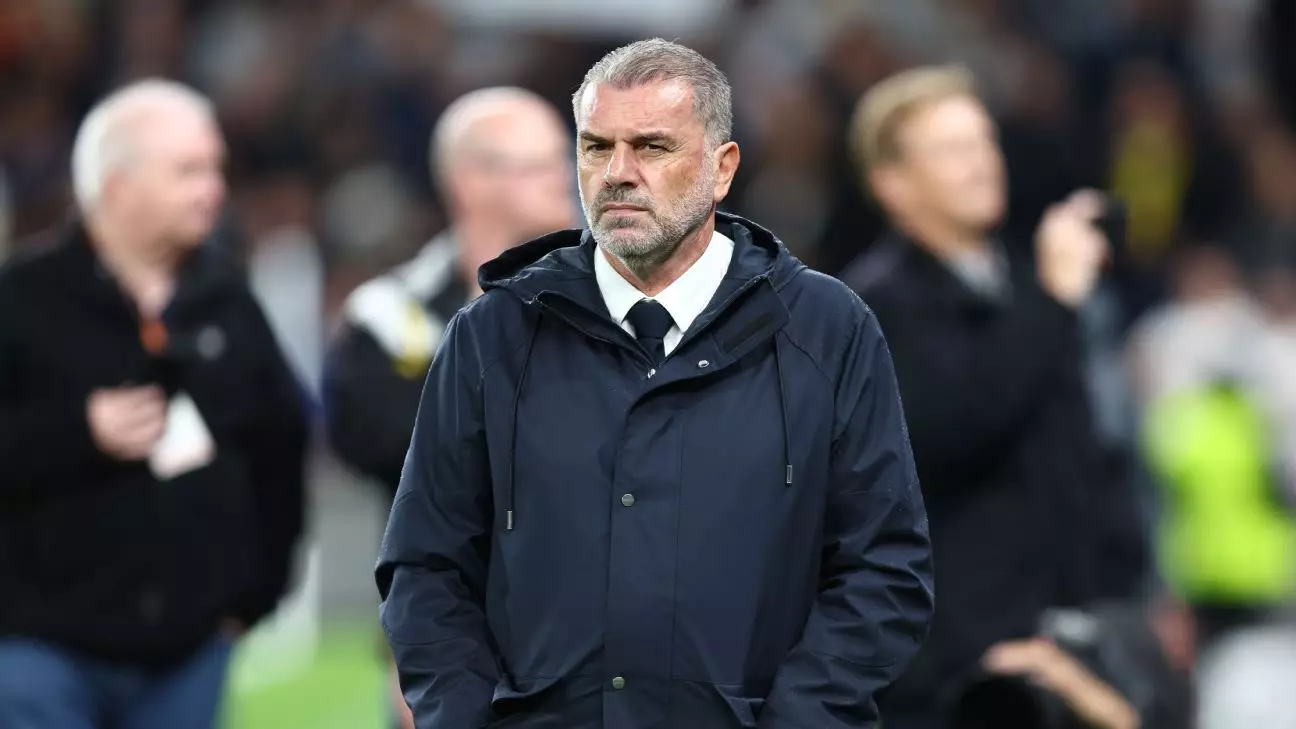As the Premier League continues to showcase its intense competition, the scrutiny that managers face has never been greater. Take, for instance, Erik ten Hag’s tenure at Manchester United, which has oscillated between commendable victories and harsh criticisms. In a recent press conference, Ange Postecoglou, the head coach of Tottenham Hotspur, spoke highly of his counterpart. He acknowledged ten Hag’s accomplishments, particularly the silverware earned despite the tumultuous landscape that defines management in the English top flight. The dynamic between praise and criticism in football management underscores the immense pressure coaches are under, regardless of their achievements.
Going into their upcoming clash, both Spurs and United find themselves hovering mid-table, indicating that neither team has found consistent form. The matchup carries significant weight for both clubs as a potential turning point in their respective seasons. Postecoglou noted that the criticism aimed at ten Hag is emblematic of the environment in which Premier League managers operate. The relentless media cycle and fan expectations create a volatile atmosphere, further intensified when the stakes are high, such as when clubs like Manchester United are involved.
Evaluating Ten Hag’s Performance Amidst Criticism
Under ten Hag’s leadership, Manchester United has experienced both triumph with the Carabao and FA Cup victories and disappointment, marked by last season’s eighth-place finish—its worst in the Premier League era. This duality prompts the question: how should one assess a manager’s effectiveness in the face of contrasting outcomes? Postecoglou offered insight by postulating that a two-trophy haul should not be overlooked. Many pundits and fans, however, measure success by a more expansive criteria, demanding not just trophies but also consistent league performances that reflect quality and depth in the squad.
The expectations of a manager at a prestigious club like Manchester United are undeniably rigorous. The phrase “what have you done for me lately?” rings especially true when results fluctuate. The underlying tension in the managerial role suggests that no coach can remain complacent, as their legacy is continually under construction, often influenced significantly by the media’s portrayal. This facet of modern football management creates an environment of perpetual readiness, with each match serving as a potential turning point.
Challenges Ahead: Injuries and Squad Depth
As Spurs prepare for their encounter with United, they do so amidst a backdrop of injury concerns. Among these is the uncertainty surrounding star player Son Heung-Min, who recently showed signs of distress following a crucial Europa League victory. Postecoglou’s remarks about the team’s fatigue highlight another layer of complexity in managing squad dynamics. The loss of key players like Wilson Odobert and Richarlison restricts tactical options and places additional stress on remaining squad members.
Postecoglou’s confidence in academy product Mikey Moore signifies an important coaching philosophy: trusting youth. While the idea of fielding a 17-year-old may raise eyebrows, it also reflects a willingness to adapt strategies under duress. Introducing younger players not only benefits the team’s immediate needs but also fosters a sustainable approach to squad management, which is vital in a league that demands depth and versatility.
The narrative around managerial success and failure in the Premier League is intricate, characterized by a combination of immediate results and longer-term vision. As Postecoglou prepares to face ten Hag’s Manchester United, it’s evident that both coaches are navigating a landscape rife with challenges. In an age where every decision is scrutinized, and every result can tip the balance between popularity and professional peril, the resilience and adaptability exhibited by these managers may become their most valuable assets.
Ultimately, in high-stakes environments, the balance between pressure and performance can make or break a managerial career. The upcoming match could serve as a pivot point not only for the teams involved but also for the coaches tasked with inspiring their squads amid adversity. The rich tapestry of Premier League management continues to unfold, filled with narratives of resilience, ambition, and the constant quest for excellence.

